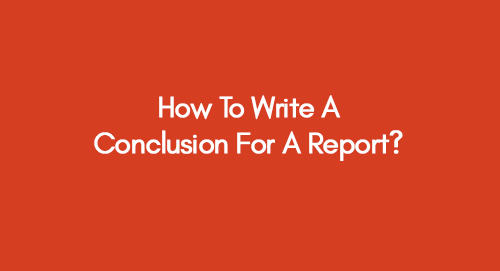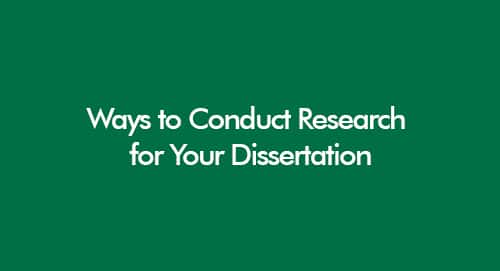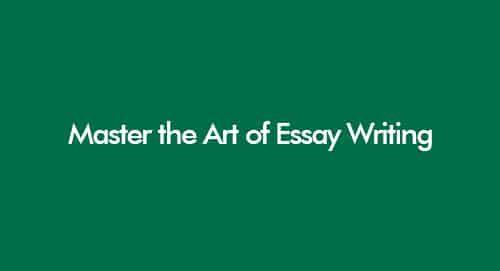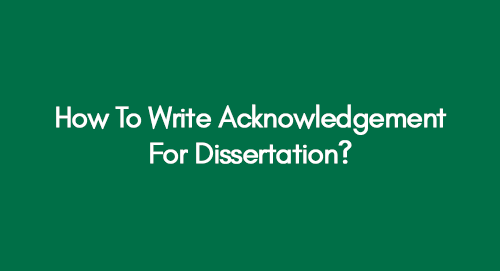
How to Write Acknowledgement for Dissertation? | A Comprehensive Guide
October 27, 2022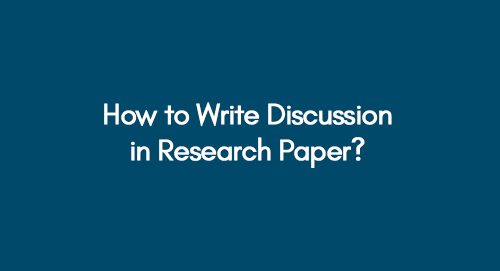
How To Write a Discussion in Research Paper? | Expert Tips and Techniques
November 11, 2022Crafting a powerful conclusion for your report is essential to leave a lasting impact. Our blog post on 'How to Write a Conclusion for a Report' will guide you through the steps to wrap up your findings effectively.
Discover the Art of Crafting a Confident Conclusion Here
A well-written conclusion summarises your findings and leaves a lasting impression on your readers. Let's embark on this journey to enhance your report-writing skills and conclude with confidence.
Concluding notes should capture what has been accomplished and provide a sense of closure for readers.
10 Things to Include in a Conclusion
These 10 things can make your report conclusion reader worthy and impactful. I will explain each in detail in this article.
- A summary of your main points
- The implications of your findings
- The limitations of your study
- Future research suggestions
- Your own opinion on the subject matter
- A call to action (if appropriate)
- A thank you to your readers/listeners
- Any acknowledgments or credits (if applicable)
- Your contact information (in case people want to get in touch with you)
- A final thought or quote that ties everything together nicely.
Why Writing a Conclusion is Necessary for a Report?
A lot of students wonder why writing a conclusion is necessary for a report. After all, you've already stated all your findings and conclusions in the body of the report, so why restate them again in conclusion? Well, there are quite a few good reasons for writing a conclusion.
A Conclusion Serves Several Important Purposes
- It gives your reader a sense of closure. The body of your report might raise many questions and leave your reader uncertain. A good conclusion will address those questions and help your reader understand your findings' implications.
- A conclusion helps to tie all the threads of your argument together. The body of your report might present many different ideas and evidence, but a good conclusion will synthesize all that information and present it.
- The conclusion might assist in highlighting the significance of your case. Your reader will be reminded of the importance of what you have just delivered if you restate your major arguments in the conclusion.
- Lastly, a conclusion might make your argument stick in your mind. You may leave your reader with something to ponder about long after they've done reading your report by concluding with a compelling statement or call to action.
Three Major Elements to Consider while Writing a Conclusion
How to write a conclusion for a report that squeezes the crux in concise sentences? A report's conclusion is composed of three main components:
- Answer: A review of the thesis
- Summary: The essential ideas and highlights from the body paragraphs are summarized.
- Significance: The importance of the essay's conclusions and their relevance and ramifications.
No new material should be presented here that is pertinent to the essay's topic. A body paragraph is where you should place new points if you desire to do so.
1. Answer
It is crucial to review your thesis statement in conclusion, just like you did in the introduction. Don't just repeat it word by word once more. Rearrange it while keeping the crucial keywords in mind. (The paraphrasing rules might be useful for rewording tactics.)
The thesis statement is frequently restated at the start of the conclusion. The remainder of the conclusion elaborates, illuminating the reader's understanding of the significance and ramifications of your response.
2. Summary
The conclusion is the last segment of your essay, where you may tie together all the points you've made. The most significant, pertinent, and helpful key themes from your body paragraphs should be recapped here. Don't merely repeat the same lines; instead, use the same terms and concepts as the body paragraphs.
3. Significance
Essays are frequently characterized as an effort to "sell" your viewpoint on a subject. A strong essay persuades the reader that your point of view is accurate. An outstanding essay takes a step further by explaining to the reader why the argument is particularly significant or pertinent to the subject.
In conclusion, you can make several general assertions to go beyond simply summarizing the essay.
- What conclusions may be drawn from this argument?
- Why is it crucial?
- What problems does it bring up?
Not every essay can end like this. Lesser-worded essays (those under 1200 words) lack the space to explain the relevance fully. However, a more general comment about the larger picture might be powerful if you seek a creative method to close your essay.
Different Methods to Write an Effective Conclusion
You want to finish strong and leave the reader with an interesting closing thought. What are some different methods you can use to write an effective conclusion?
- Restate your thesis differently than you did in your introduction.
- Summarize your main points.
- End with a strong quotation from a primary or secondary source that supports your argument.
- Ask a provocative question that encourages further thought or discussion.
- Connect your argument to a larger historical, social, political, economic, or philosophical context.
- Issue a call to action for your reader.
- Share an anecdote or personal story that brings your argument to life.
- Use descriptive language to paint a picture for your reader.
- Use strong verbs (e.g., "demonstrate," "illustrate," and "indicate") to make a lasting impression.
- Use humour responsibly to lighten the mood or emphasize a point.
- Refer to the title of your paper in your conclusion to remind the reader of what they have just analyzed.
- Make sure that your conclusion is consistent with your paper's overall tone and style.
- Edit, edit, edit! Make sure that your conclusion is free of grammar and spelling errors.
- Have someone else read over your conclusion before you turn in your paper—a fresh set of eyes may catch something that you missed.
- Take a break! Once you have finished writing your conclusion, leave it aside for a day or two so you can come back to it with fresh eyes.
Conclusion
Writing an effective conclusion can be challenging, but there are several different methods that you can use to write a successful one. Keep these suggestions in mind the next time you sit down to write a conclusion, and you'll be sure to impress your reader.
A good conclusion paragraph should tie up all of the major points of your paper and restate your thesis statement. If you're struggling to write a paper or want someone to help, Premier Dissertation is here for you. We can help with any part of the writing process, from developing a topic to editing your final draft. Contact us today and get started on getting the grade you deserve!
Learn more about how to write a conclusion;
- Practical Strategies to Write a Good Conclusion
- How to Write a Conclusion for Academic Paper
- How to Write a Dissertation Conclusion?
- Wrapping up Your Dissertation: Create a Realistic Timeline for Completing Your Dissertation Conclusion
You may Contact Premier Dissertations to help craft the perfect conclusion for your report.
Get 3+ Free Dissertation Topics within 24 hours?

















